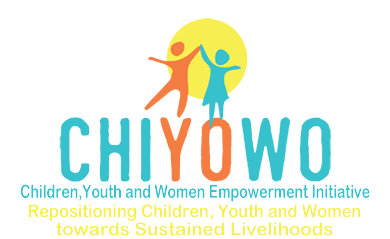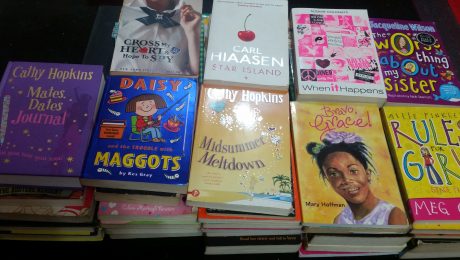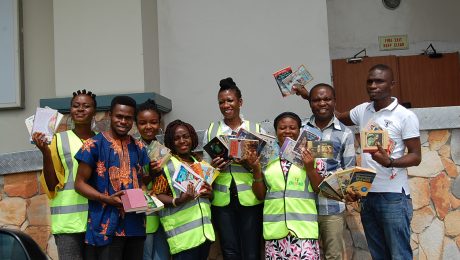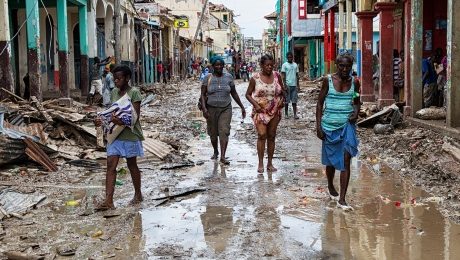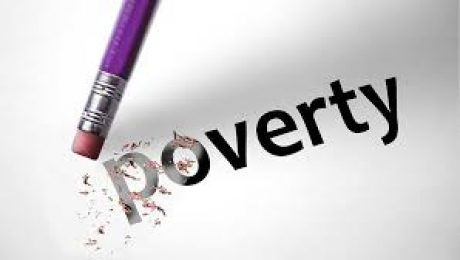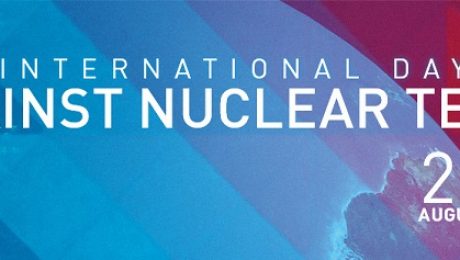Books and DVDs – Donations from a Childhood Friend…
Dear Family, Friends and Supporters,
More good news!
In the words of the famous singer Dionne Warwick … “Keep shining, keep smiling, knowing you can always count on me … that’s what friends are for”!
It feels so good when childhood friends want the best for you :). Such is my story … my childhood friend just donated an additional 52 books and 22 DVDs towards our Book Drive Nigeria 2017. I was most definitely pleased to receive the items from her family!
We are truly excited and can’t wait to see the happy faces of our beneficiaries.
As promised, we will keep you informed of every step of the Book Drive Nigeria 2017 journey.
Much appreciated,
Toks and the Team
Nigerians in Nigeria are Donating Books as well…
Dear Family, Friends, and Supporters,
Fantastic News!
More books have been delivered to us for the Book Drive Nigeria 2017 all the way from Ibadan, Oyo State, Nigeria. The books totaling 128 are a welcome addition to our growing donations.
Thank you very much to our donor! We are thrilled to have donations coming from another State as our campaign gets bigger. Remember, we will be donating books all across schools in hard to reach communities in Nigeria.
Please keep your book and financial donations rolling in…tell everyone :).
We love you for donating!
Much appreciated,
Toks and the ChiYoWo Team
NB: See a picture of some of our team members with some of the books :).
Our Hope for 2017 and Beyond…
Our Hope for 2017 and Beyond
By ChiYoWo
With 2016 coming to a close it is time to start thinking about the New Year and the things we want to accomplish not only for ourselves but for our children, our youth, and our women all over the world.
The people of Nigeria, especially women and children have been struck by many hardships over the years and it is time for adversity to end. It is time to have access to education, for there to be gender equality, greater access to healthcare, and for everyone to equally have the opportunity to live a happy and prosperous life.
There are many people and organizations all over the world that are making what once was a dream, a reality. Organizations such as ONE, The Nigerian Health Watch, Health Reform Foundation of Nigeria, Afri-Dev, WARDC and partners are calling on the Government of Nigeria to:
- Allocate dedicated resources to benefit all Nigerian women and girls, particularly in the poorest and the most vulnerable areas.
- Step up funding for nutrition in the 2017 budget in line with the national nutrition strategy.
- Provide additional funding of 1% of CRF promised for the Basic Care Provision Fund within the National Health Act and to do so within the 2017 budget. A call has been made to set a timetable to achieve the Abuja Declaration commitment to allocate at least 15% of the annual budget to health by the end of the term of this government in 2019.
- Ensure that states allocate the 15% to the health budget and data is made available on health budgets allocated and implemented at both the state and federal levels, to facilitate accountability to citizens.
This New Year brings new hope to the children youth and women in Nigeria. There are people listening, raising awareness, and working hard to ensure that lives and situations change for the better. It is time to make a difference.
Related Research:
ONE – https://www.one.org/africa/press/make-naija-stronger-health-campaign-launched/
- Published in ARTICLES
What is AIDS?
What is AIDS?
By ChiYoWo
AIDS stands for Acquired Immune Deficiency Syndrome. AIDS is caused by the HIV virus. AIDS occurs when the HIV infection is very advanced, and your immune system is too weak to fight off infections. This is the last stage of HIV where your body is too weak to fight off or defend itself and may develop various infections and diseases. If left untreated the probability of death is high.
What is HIV?
HIV is a disease that gradually attacks our body’s natural defense against illnesses-the immune system. The HIV virus attacks and destroys a type of white blood cell known as the T- helper cell. While destroying the T- helper cell, it makes a copy of itself and places it inside it. The HIV virus makes it extremely difficult for your body to fight off illnesses and diseases.
There are two types of HIV:
- HIV-1: The most common type found worldwide.
- HIV-2: Mainly found in Western Africa, with some cases in India and Europe.
There is currently no cure for AIDS or HIV, but with the right treatment people who are infected can live long, healthy lives.
At the end of 2015 there were 36.7 million people who were living with HIV, with 9% of those people living in Nigeria. That means that there are 3.5 million people living with HIV in Nigeria alone. Globally, 15% of women that are living with HIV are between the ages of 15 -24 years old with 80% living in Sub-Saharan Africa. 400,000 children in Nigeria are currently living with HIV. Most of these children become infected by mother-to-child transmission which includes pregnancy, giving birth, and breast feeding. Other instances include sexual transmission, children who inject drugs and infection through medical/healthcare settings (though this is rare).
UNAIDS says that of the 36.7 million people that are infected with HIV, 19 million of them do not know their HIV-positive status and that adolescent girls and young women make account for one in four new HIV infections in Sub-Saharan Africa.
Though in recent years the numbers of AIDS related deaths and new HIV infections have been on the decline, it is still very much a major issue around the world. It is important for everyone to be educated, practice safe sex and to get themselves tested.
Please join us in raising awareness on AIDS and the impact it has on people, their families and our world on December 1, 2016 for World AIDS Day.
Sources:
[1.] UNAIDS – http://www.unaids.org/en/resources/fact-sheet [2.] World AIDS Day – https://www.worldaidsday.org/ [3.] Avert – http://www.avert.org/professionals/hiv-around-world/sub-saharan-africa/nigeria#footnote1_koph3hb [4.] UNAIDS Gap Report – http://www.unaids.org/sites/default/files/media_asset/UNAIDS_Gap_report_en.pdf [5.] WHO – http://www.who.int/gho/hiv/en/ [6.] Avert – http://www.avert.org/about-hiv-aids/what-hiv-aids
- Published in ARTICLES
International Day for the Eradication of Poverty
International Day for the Eradication of Poverty
By ChiYoWo
Almost half of the world, over 3 billion people is considered to be living in poverty, surviving on less than $2.50 a day. More than 1.3 billion people are considered to be living in extreme poverty, living on less than $1.25 a day. International Day for the Eradication of Poverty was created to help raise awareness to these alarming statistics and the need to eradicate poverty and destitution all across the globe. It promotes dialogue and understanding between people living in poverty and their communities, and society at large (1).
Effects of Poverty
Poverty doesn’t just mean living on little to no money. Issues like hunger, illness, lack of shelter, and no access to healthcare, education, or other services are all effects of poverty. One of the biggest issues however, is the lack of access to clean, safe water. Nearly 1 billion people across Africa do not have access to clean drinking water (2). Without clean water, many problems arise. People are at great risk for many waterborne diseases. It is estimated that 50 percent of Africans have a waterborne disease such as cholera and with unsafe water; growing food is not an option. With no food, comes hunger. A staggering 75 percent of the world’s poorest countries are located in Africa, with one in four people being undernourished (3). That is an estimated 233 million people and living on less than a $1.25 makes this a very unsettling statistic (4, 5). Although environmental factors and conflict do weigh in, it simply comes down to the fact that without sufficient income and unclean water, people do not have the means to purchase or grow food (5). However, with no access to clean water and food, children are removed from school to help fetch water where ever they can find it such as from streams or wells. Sometimes children work to help support their families. Ultimately, such children are not able to get the education they deserve.
Helping End Poverty
We must all work together and help end poverty. We need to make sure that every person on this planet has access to clean drinking water, education, jobs, and food. Please help observe International Day for the Eradication of Poverty on October 17th. If we all work together we can make this world a better place.
Sources:
[1.] World Health Organization – http://www.who.int [2.] The Water Project- https://thewaterproject.org/why-water/poverty [3.] The Borgen Project – http://borgenproject.org [4.] Do Something.org- https://www.dosomething.org [5.] Worldhunger.org – http://www.worldhunger.org- Published in ARTICLES
Youth Leadership and Mentoring: Quick Facts
Youth Leadership and Mentoring: Quick Facts
By ChiYoWo
The good news is Nigeria has been experiencing a sustained period of economic growth in the last decade. The bad news is that Nigeria has also been experiencing a sustained period of jobless growth. So, while the economy has been doing well, people are still left underemployed or unemployed. This unemployment crisis has particularly hit Nigeria’s youth. With Nigeria’s population reaching 185 million and with at least half of that population considered youth, this is really a big of a problem for the most populous nation on the African Continent. According to the National Population Commission, youth is defined as an individual between the ages of 15 and 34.
So what is it that causing so many youth to be affected by this unemployment crisis? According to Brookings, there are several factors that contribute to unemployment in youth. These include the lack of education, and a high population growth rate.
So what can we do? Fortunately, there are many things we can do to help our youth overcome this obstacle. For one, we can initiate youth mentoring programmes. It is shown that deficient school curricula and poor teacher training have contributed to the failure to provide students with appropriate skills to make them employable. By initiating youth mentorship programmes, we are showing our youth that we do in fact care about their future. According to the National Mentoring Partnership, “Mentoring, at its core, guarantees young people that there is someone who cares about them, assures them they are not alone in dealing with day-to-day challenges, and makes them feel like they matter. Research confirms that quality mentoring relationships have powerful positive effects on young people in a variety of personal, academic, and professional situations. Ultimately, mentoring connects a young person to personal growth and development, and social and economic opportunity. Yet one in three young people will grow up without this critical asset.”
Here are some quick facts about young adults that had a mentor in America which Nigeria can learn from:
- 55% more likely to enroll in college
- 78% more likely to volunteer regularly
- 90% are interested in becoming a mentor
- 130% more likely to hold leadership positions
We must educate and show our children that we care about them and we care for their future. Providing a mentor will not only show them that someone cares for their future, we are in turn teaching them leadership skills that will have for the rest of their lives. Let’s get involved today!
Sources:
[1.] Mentoring – http://www.mentoring.org/why-mentoring/mentoring-impact/ [2.] Country Meters – http://countrymeters.info/en/Nigeria [3.] AfriGrowth Foundation – http://afrigrowth.org/programs/youth-mentoring/ [4.] Dalberg – http://www.dalberg.com
- Published in ARTICLES
Life in Haiti after Hurricane Matthew in 2016
Life in Haiti after Hurricane Matthew in 2016
By ChiYoWo
Six years after dealing with a devastating 7.0 magnitude earthquake that killed more than 200,000 people and destroyed more than 300,000 buildings, Haiti had to deal once more with tragedy.
Hurricane Matthew swept through the country on October 4, 2016 killing more than 1,000 people, leaving 175,000 people homeless and 1.4 million in need of food assistance. The country’s Directorate of Civil Protection claimed that when Hurricane Matthew slammed into Haiti it was a Category 4 hurricane that that had 145-mph winds. According to BBC News, almost 90 percent of Haiti’s south had been completely destroyed.
Though there have been many aid groups out surveying the damage and trying to reach as many people as they can, they are struggling with reaching the hardest hit areas such as Jérémie due to fallen trees, debris and roads and bridges that are impassable. There are also various roadblocks set up by desperate people trying to divert aid trucks so that they too may get supplies. Along with the need of food and shelter many need clothes, shoes, and medical care. According to Reuters, there are people with injuries such as broken bones that have not been treated since the hurricane hit.
Not only do the people of Haiti have to worry about finding food, shelter, and medical attention, but they also fear that disease may strike in the wake of disaster-fears that have been proven legitimate. There are at least 2,271 suspected cases of cholera in Haiti with the number rising every day. Haitians also have to worry about tetanus and waterborne diseases worsening due to persistent rainfall. Other worries include access to healthcare for pregnant women and protection for the women and girls that have been displaced.
Amidst all of this chaos however, the people of Haiti solider on. Marielle Sander, the United Nations Population Fund representative for Haiti says she remembers a midwife in Jérémie deliver six babies in the height of the storm with “water up to her knees”.
There are many people trying to resume their lives as best as they can. Some schools have reopened (although supplies such as books are still needed), people are going back to work if they are able, and the markets are slowly bouncing back.
Though there is a long road to recovery for Haiti, with the commitment and dedication from everyone in the world, they can rebuild and come back stronger than ever! There are websites you can visit to help today.
Sources:
[1.] Weather.com – https://weather.com/news/news/hurricane-matthew-haiti-latest-news-0 [2.] CNN – http://www.cnn.com/2016/10/06/americas/hurricane-matthew-cuba-haiti/ [3.] USA Today – http://www.usatoday.com/story/news/world/2016/10/26/hurricane-battered-haiti-matthew-recovery/92678570/ [4.] Weather.com https://weather.com/storms/hurricane/news/hurricane-matthew-by-the-numbers [5.] Weather.com https://weather.com/news/news/hurricane-matthew-haiti-effects-continue [6.] Weather.com https://weather.com/news/news/hurricane-matthew-haiti-effects-continue
- Published in ARTICLES
United Nations Day
United Nations Day
By ChiYoWo
The United Nations is an international organization that was created to give countries the opportunity to meet together and discuss important world issues. These issues include international conflicts, world peace, and social justice for humanity. The United Nations encourage resolutions without war, and form policies on international issues.
Aims:
The United Nations has four main purposes. These purposes are:
- Maintaining worldwide peace and security,
- Developing relations among nations,
- Fostering cooperation between nations in order to solve economic, social, cultural, or humanitarian international problems, and
- Providing a forum for bringing countries together to meet the UN’s purposes and goals.
History of United Nations Day
Shortly after World War II ended, representatives from 51 countries got together and drew up the United Nations Charter. On October 24, 1945 the United Nations officially came into existence. The Charter was sanctioned by China, France, Soviet Union, United Kingdom, United States of America, and many more countries and has been celebrated every year.
United Nations Day is committed to letting people all over the globe know the goals and achievements of the United Nations Organization. This year’s United Nations Day theme was, “concrete actions people can take to help achieve The Sustainable Development Goals”
According to UN Secretary –General Ban Ki-moon, “Humanity has entered the era of sustainability – with a global commitment to fulfil the great promise of the 2030 Agenda for Sustainable Development. In this, the Organization’s 71st year, we have 17 goals to propel us towards a better future for all on a healthy planet.”
Therefore, to achieve sustainable development the following practical goals have been identified:
- Donate what you don’t use
- Avoid throwing away food
- Vaccinate your family
- Avoid wasting water
- Think of innovative ways to re-purpose old material
- Recycle paper, plastic, glass, and aluminum
- Avoid using plastic bags to keep the oceans safe and clean
Sources:
[1.] United Nations – http://www.un.org/en/events/unday/ – http://www.un.org/en/sections/history/history-united-nations/ – http://www.un.org/en/events/unday/posters.shtml [2.] Study – http://study.com
- Published in ARTICLES
Poverty Reduction – It’s Not All About Money
Poverty Reduction – It’s Not All About Money
Tokunbo Ifaturoti
Introduction
The United Nations’ Transforming our world: the 2030 Agenda for Sustainable Development, otherwise known as the Sustainable Development Goals or SDGs have as its first goal “No poverty” with an attendant target to “end poverty in all its forms everywhere”. The essential idea in that target is poverty comes in many forms.
Defining Poverty
Investopedia offers the following definition: “Poverty is a state or condition in which a person or community lacks the financial resources and essentials to enjoy a minimum standard of life and well-being that’s considered acceptable in society.” This powerful definition brings a few important points into focus.
- Poverty affects individuals and groups of individuals.
- Poverty is about more than a lack of money (but what are the “essentials” to which the definition alludes?)
- Use of the term “enjoy’ in relation to having at least what is considered the minimum standard of living suggests that where there is poverty, instead of “joy” we will find the opposite – “misery”.
- Poverty is unacceptable.
The Essentials
Money or “financial resources” aside, what other lacking factors should we consider when discussing poverty? According to the United Nations, poverty also involves several social, political and cultural aspects. It encompasses
- a lack of “access to health care and education”
- infringement upon the “freedom of thought, expression and association”
- prevention of “the right to maintain one’s cultural identity and be involved in a community’s cultural life”
The World Bank highlights that over three-quarters (77.8%) of persons below the poverty line live in South Asia and Sub-Saharan Africa. The Bank goes on to list the “essentials” that these persons are having difficulty accessing as “schools, healthcare, electricity, safe water and other critical services”.
Reducing Poverty In All Its Forms: Self-Reliance
In order to eradicate poverty in all its forms, the world’s poor must be empowered through self-reliance to rise above the threshold of financial poverty. This can be done by implementing entrepreneurship initiatives that allow individuals and communities to earn an acceptable income out of the skills and resources they already have.
All persons within poverty stricken communities must be able to freely access educational facilities which provide even the most fundamental levels of literacy and numeracy. Where there are no such institutions, these need to be built and persons trained to work in them. Ideally, over time, these persons will be drawn from within the community – an example of community self-reliance.
Provision of clean water
Self-reliance in accessing clean water is also vitally important. There are many charities that focus on bringing in drinking water to disadvantaged communities. While this assistance is absolutely needed in the short-term, it is not a solution for the long-term. Communities need to be exposed to practical innovations in harvesting fresh water, such as by the drilling and maintenance of wells.
Conclusion
Attainment of the SDGs hinges on finding ways to address the issues that lead to poverty in the first place and then later pose as obstacles to persons retaining their new found status above the poverty line. Providing assistance now that is geared to helping the poor eventually taking on the responsibility of improving their own well-being is the key to eradication of poverty around the globe.
- Published in ARTICLES
International Day Against Nuclear Tests – August 29, 2016
International Day Against Nuclear Tests – August 29, 2016
Tokunbo Ifaturoti
The International Day Against Nuclear Tests has been observed since 2010 with the hope of drawing attention to the need to finally bring the Comprehensive Nuclear-Test-Ban Treaty (CTBT) into force.
The first successful test of a nuclear bomb, code named Trinity, was carried out at Alamogordo, New Mexico on July 16, 1945. Most of the world’s population had no inkling of its occurrence, but that event set off a chain reaction of events. Those events have included close to 2000 nuclear tests, growing awareness about their starkly negative effects and the adoption of the International Day Against Nuclear Tests.
The lingering and as yet not fully understood impact of exposure to nuclear radiation and contaminants have provided ample reason for a feeling of wariness about the negative consequences of nuclear tests. The world saw the utter devastation that occurred when the United States detonated two bombs against Japan. Over the ensuing decades, the lasting repercussions of the explosions on the health of people in the affected areas have been brought to our attention time and time again.
There have been several nuclear plant incidents, as well, of which the Chernobyl disaster in the Ukraine and the recent tsunami induced nuclear plant accident in Fukushima, Japan stand out for most people. These coupled with a push by a growing number of nations to develop nuclear weapons as a means of offense and defence, have fuelled a call for the need to put an end to nuclear testing.
In the days around August 29, the member states of the United Nations will highlight the relevance and necessity of the International Day Against Nuclear Tests by hosting various activities aimed at disseminating information about it. Organizations such as the International Physicians for the Prevention of Nuclear War (IPPNW), Greenpeace International and Global Zero, have also joined in the call for greater awareness in the push toward a world without nuclear weapons.
As UN Secretary-General Ban Ki-moon points out, disarmament is important “because the resources it will free up could be used for other global challenges.” These challenges include those faced by poverty and strife stricken regions around the globe. Within these areas many people barely survive below the poverty line and are in need of resources to help jumpstart their journey to being able to provide for themselves and their families.
“On this Day, I call on all countries and peoples to work for the CTBT’s entry into force as soon as possible so that we may advance toward a nuclear-weapon-free world.” — UN Secretary-General, Ban Ki-moon
- Published in ARTICLES
